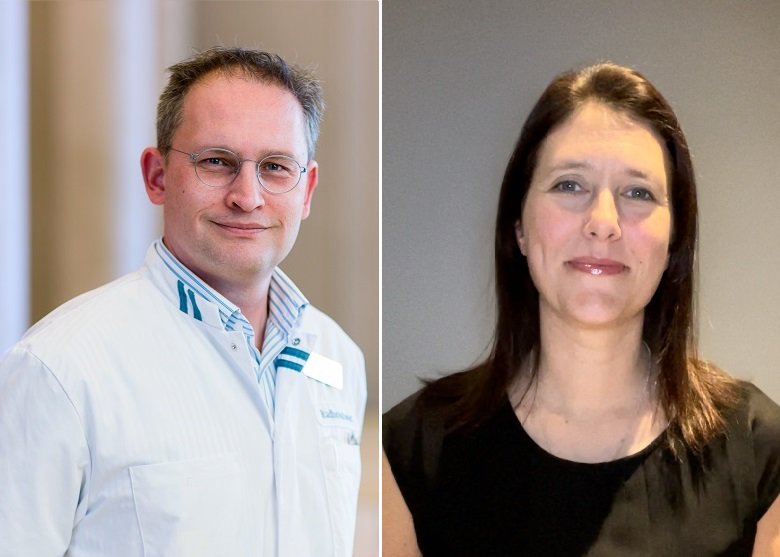
Article • HIMSS
COVID response boosted by digital transformation
Digital transformation has been a significant factor in the way hospitals have responded to the challenges posed by the COVID-19 pandemic. The ability to rapidly share data, monitor patients, and forecast future patterns has helped tackle the coronavirus crisis.
However, during a presentation on the subject of Digital Transformation for Hospitals at the online HIMSS21 European Health Conference, a panel of experts were also quick to point out that the approach of the ‘human resource’ to the challenges and changes was a key factor. The session shared best practices from hospitals in the UK, the Netherlands and Portugal, highlighting lessons learned from the pandemic, and how HIMSS (Healthcare Information and Management Systems) models have supported digital transformation.
Digital maturity
COVID-19 highlighted the need to accelerate the digital maturity of health systems to improve patient health but also to be better prepared to respond to future public health crises. The session, chaired by HIMSS Analytics regional director (Europe and Latin America) John Rayner, examined how to overcome major challenges through information and technology.
Katie Trott, Chief Nursing Information Officer at the Royal Free London NHS Foundation Trust, detailed the pandemic experience in London, particularly surrounding the creation of the 4,000-bed temporary Nightingale hospital in a large exhibition hall. “One thing we learned from that was the ability to be able to share our information on patients that were transferred there,” she said. “Staff at the Nightingale hospital were able to see everything about patients because of the Electronic Health Records and the health information exchange we set up at the start of the pandemic.”
Rapid transformation
That demonstrated how quickly transformation could happen, and the appetite for doing this at speed and scale, not only from staff but patients too, she said, alongside a greater willingness to share information from organisations that were previously more cautious about doing so. However, she stressed the importance keeping the end user’s preferences in view when switching to new technologies, and also of undertaking the right evaluation processes while trying to respond swiftly.
Going forward, Mrs Trott noted a renewed enthusiasm among staff at the Chase Farm Hospital – which is part of the Royal Free London NHS Foundation Trust group – and other medical units, in wanting to adopt new ways of working, and for quicker data sharing, but stressed the importance of ensuring personnel are included in discussions and decision-making and offered relevant training.
Good preparation
Vasco Antunes Pereira said that technology as a promoter of excellence in healthcare has been proven during the pandemic within his hospital in Portugal. But he underlined the importance of good preparation in the ability to adapt fast, with technology as an enabling tool to deliver better healthcare. “A key element in this equation has to be the human factor and the team working together,” he said. “We used the same knowledge and the same team but used technology that enabled us to reach a new standard of quality and care. It is always about the people.”
Staff flexibility
Clinical Data Scientist and pediatric intensivist Dr Ronald Petru from Radboud Medical Centre in The Netherlands said digitisation enabled the hospital to be adaptable and quickly switch between COVID care and regular, which was effectively conducted remotely from March 2020.
“This,” he continued, “required flexibility from staff, and the need for an infrastructure that is preferably virtual and is scalable in capacity and security. “There was also the need for flexible software solutions in a rapidly changing situation, which must be easily configurable to expand and adapt to new insights, drug regimes, and protocols. You also need great leadership; if you are to manage a crisis, you have to be in control.”
Dr Petru, who was the hospital’s chief medical information officer from 2014 to 2020, emphasised the need for situational awareness and real-time data to transform information into knowledge to quickly assess patient numbers, those with COVID and those who may have to move to intensive care, and to forecast future activities to be able to upscale or downscale quickly.
Change management
He said: “At the core of digital transformation is change management. What we have seen in the pandemic is that everybody realised that change was necessary and if everybody wants to change, we can quickly achieve things that would normally take years.”He also highlighted the need for IT and information management to be incorporated into the training of future health professionals.
In summing up the discussion, Dr Rayner stated: “There is clear correlation between digital maturity and how hospitals have coped over the pandemic period; the more digitally-mature a hospital, the better the hospital has coped – but flexibility of the human resource is crucial.” (MN)
Profile
Katie Trott is Chief Nursing Information Officer at the Royal Free London NHS Foundation Trust who has worked in the NHS for 27 years in nursing and midwifery and has a proven track record in managing and implementing clinical, operational and digital transformation.
Ronald Petru is a Clinical Data Scientist and a pediatric intensivist at Radboud University Medical Center and an experienced programmer in several programming languages. He was the hospital’s chief medical information officer from 2014 to 2020.
Vasco Antunes Pereira is CEO of Lusíadas Saúde, which is part of the United Health Group with 12 hospitals and clinics in Portugal. He began his career as a corporate lawyer and was director of the legal area at Hospital Amadora-Sintra before entering the private health sector.
17.06.2021







